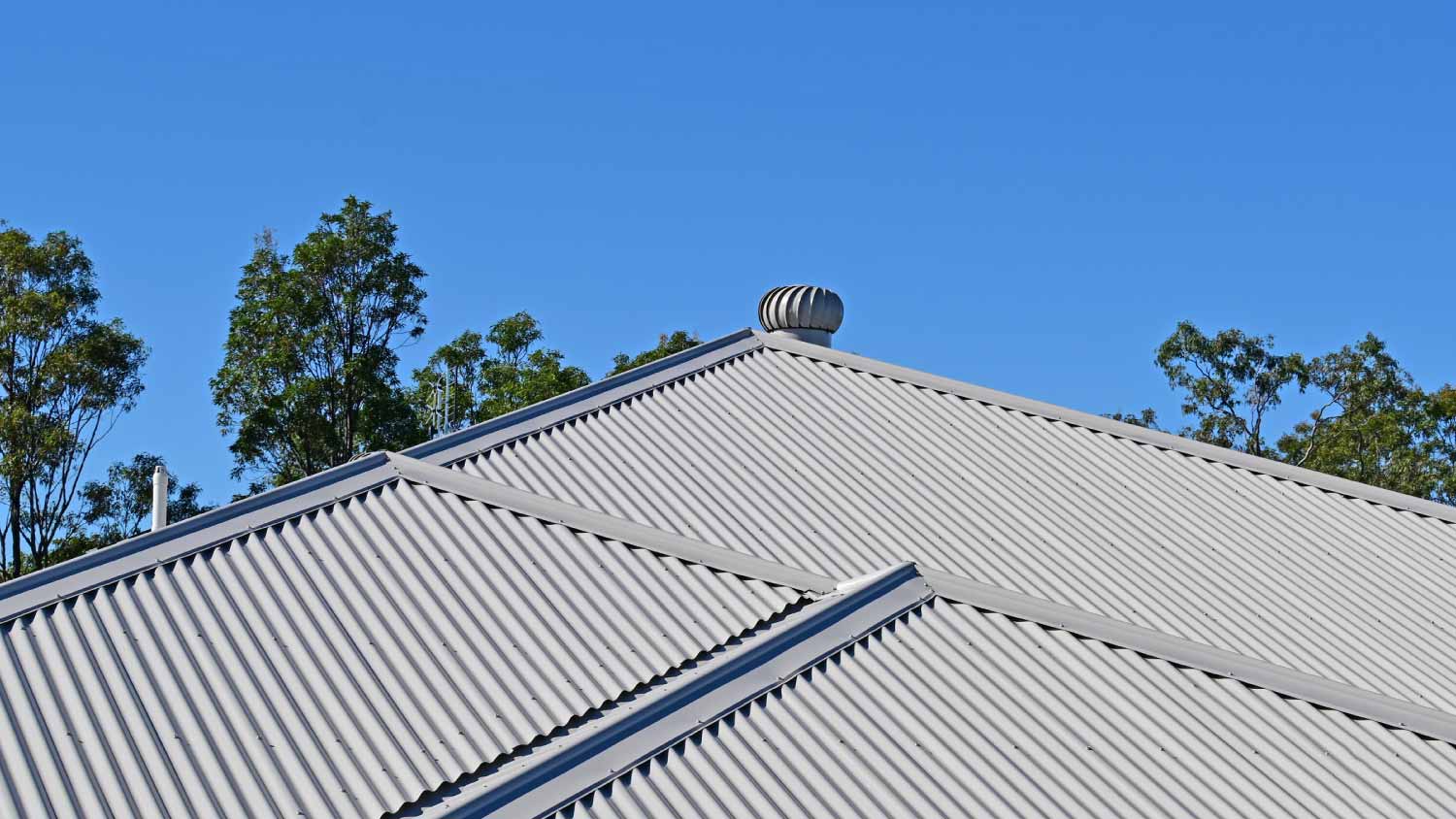
Getting a wind mitigation inspection can work in your financial favor. Learn about the average wind mitigation inspection cost, including ways to save.
Saving money on insurance is pretty metal


Metal roofs offer longevity, durability, and superior home protection.
A metal roof may lower your insurance costs, depending on where you live and your insurance policy’s details.
Provide your insurance company with documentation to see if they offer discounts for metal roofs.
Installing a metal roof can protect your home from the elements—but did you know it could also protect you from high homeowners insurance costs? Some insurance companies may offer discounted rates for metal roofs, but it depends on where you live, your insurance company’s guidelines, and the specifics of your roof. Learn more about how a metal roof might lower your insurance costs.
Metal roofs are made from steel, aluminum, zinc, copper, or other metals and are known for their long lifespan and durability. A metal roof costs an average of $5,700 to $17,700 to install, and may offer a significant return on investment (ROI) in reduced energy costs, increased home value, less frequent repair costs, and potential insurance savings.
Like all roofing materials, metal roofing has pros and cons, and homeowners may wonder if investing in a metal roof is worth it. We’ll explore some of the benefits of metal roofs and how they may affect your insurance costs.
If you’ve ever tried to get your insurance to pay for roof replacement, you know that insurance companies are very particular about what’s covered and what isn’t. What you may not know is that the type of roof you install may allow you to take advantage of insurance discounts or reduced rates. Some insurers offer incentives for homes with metal roofs—let’s look at why.
You may think metal roofs dent easily, but that often isn’t true. Many metal roofs are rated by Underwriters Laboratories (UL) as Class 4 impact resistant, which means they can resist impact damage from a two-inch steel ball dropped from several different heights.
In areas of the country that get frequent hail storms, roof damage from hail can cost insurance companies a lot in claims. In these areas, insurers may incentivize homeowners to use impact-resistant roofing material like metal to lower the risk of hail-related claims.
It’s not uncommon for high winds to cause shingle loss and damage on traditional shingled roofs. Metal roofs are far more wind-resistant, though, and less likely to be damaged during a hurricane or other storm that produces high winds. Insurance companies may offer reduced rates for roofs that won’t need repairs after high winds.
Replacing a roof can be an expensive undertaking, so you want to make your current roof last as long as possible. Asphalt shingle roofs last between 15 and 30 years, while a metal roof can last 40 to 80 years or more, depending on the type of metal. This longevity is appealing to insurers, and installing a metal roof may result in lower rates.

Before you invest in a new metal roof, check with your insurance agent about any potential savings. If your insurer offers any discounts for metal roofing, find out what kind of documentation they need. In most cases, you’ll be required to have a qualified local metal roof installer replace your roof—that way, the insurance company knows it was installed correctly. The manufacturer or installer may also offer a warranty. Find out what your roof warranty covers and provide your insurer with any related paperwork.
There are some cases where an insurer may not only give a discount for a metal roof, but your rates may increase instead—for example, if you install a metal roof over shingles, you may create potential problems your insurance company doesn’t want to be on the hook to cover.
From average costs to expert advice, get all the answers you need to get your job done.

Getting a wind mitigation inspection can work in your financial favor. Learn about the average wind mitigation inspection cost, including ways to save.

Learn all of the factors you need to consider to estimate roof ridge cap replacement costs, whether it’s safe and worthwhile to DIY the work, and more.

Wondering about the cost to tarp a roof after a large storm or before a major roof renovation? We'll break it down by size, style, and scenario.

Roof sheathing is another name for the strong layer of wood boards that are attached to your roof’s framing. Learn how much roof sheathing costs in this guide.

When you live in an area with sultry summers, selecting the best roof insulation for hot climates can help you save money on energy bills.

Discover how to install metal roofing over shingles to add long-lasting weather protection to your existing roof without removing the old material.